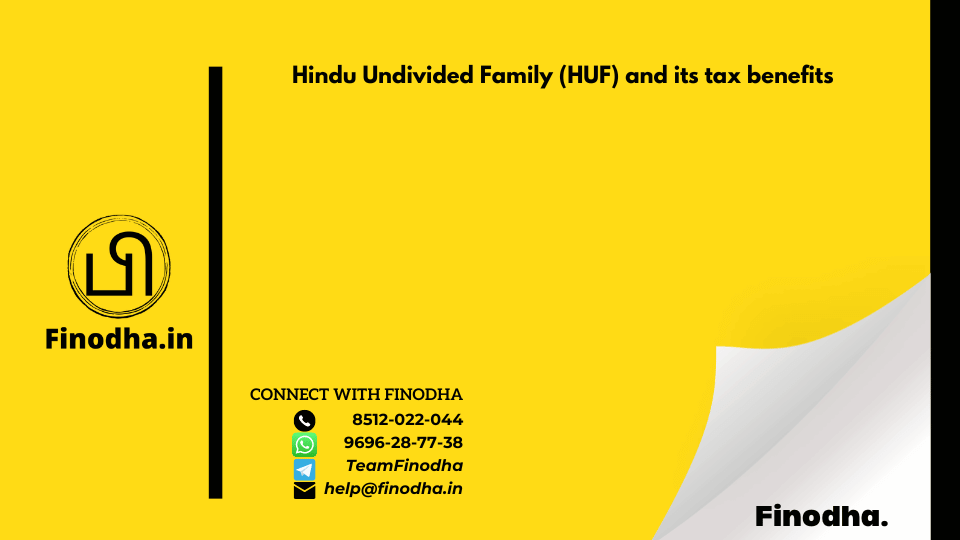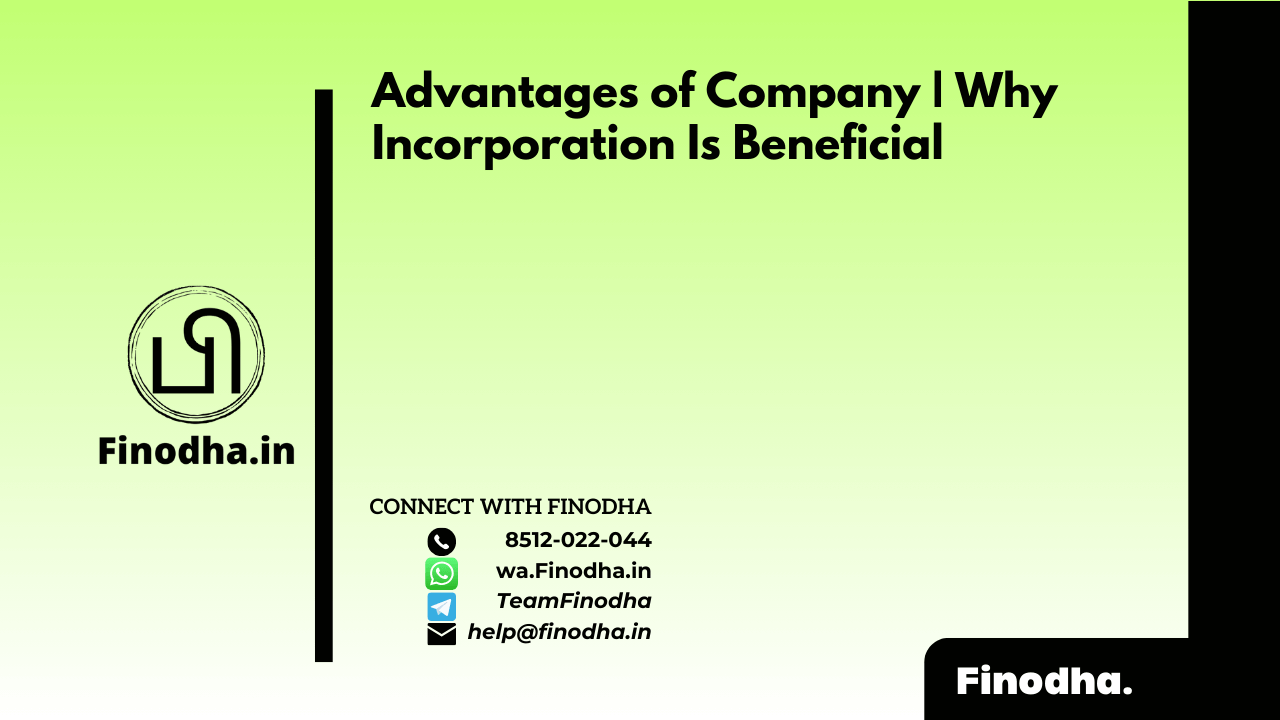Important Keyword: HUF, Income from Business & Profession, ITR-2, Section 80C, Section 80D, Section 80TTA.
Table of Contents
Hindu Undivided Family (HUF) and its tax benefits
Hindu Undivided Family, or HUF, stands as a distinct entity for Income Tax assessment purposes, offering tax advantages to its members.
Under Hindu Law, an HUF comprises all individuals descended in lineage from a shared forebear, along with their spouses and unmarried daughters. This familial structure is not established by any specific legislation but by inherent status.
Who can form HUF?
Hindu Undivided Family (HUF) formation is distinct from individual or coparcener initiation. Typically, a married male establishes an HUF, encompassing various family members such as his spouse, children, daughters-in-law, and grandchildren. In case of the demise of the father, the daughters can continue the HUF, with the elder daughter assuming the role of Karta.
The Karta, typically the eldest male, oversees HUF affairs and necessitates a separate PAN. With consensus, a junior male member can also become Karta. Other members, apart from the Karta, constitute the HUF. Notably, income contributed to the common pool or generated from HUF assets is taxed separately as HUF income, distinct from members’ earnings.
Differentiating between a Member and a Coparcener: While a coparcener holds partition rights in HUF property, a member is entitled to maintenance. Until partition, the Karta manages family property jointly for all coparceners.
Tax Implications on HUF Income:
Once acquiring a separate PAN, Hindu Undivided Family must file annual Income Tax returns, akin to individuals, with tax levied at applicable slab rates. HUF enjoys the basic exemption limit of Rs. 2,50,000, akin to individuals.
If HUF invests in a partnership firm, resulting profits and interest constitute HUF income. However, if the Karta receives salary from the same firm, it’s considered individual income.
Leveraging HUF for Tax Planning:
Transferring income taxed at higher slab rates to Hindu Undivided Family can potentially reduce tax liabilities, with HUF benefiting from deductions under Chapter VI-A, thus lightening the individual member’s tax burden.
Tax Deductions available to HUF
HUF (Hindu Undivided Family) is indeed entitled to various tax deductions under Section 80 of the Income Tax Act, 1961. Here’s a glimpse of some notable deductions applicable to HUF:
| Section | Deduction for | Allowable if |
|---|---|---|
| 80C | Life Insurance Premium | Paid for the Policy of any of the members of HUF |
| Payment under a contract for a deferred annuity | Paid for the Policy of any of the members of HUF | |
| Public Provident Fund (PPF) | Any contribution made towards PPF account of a member of HUF | |
| Unit Linked Insurance Plan of UTI & LIC Mutual Fund | The contribution made in the name of any of the members of HUF | |
| Tuition fees | Paid for children of any of the members of HUF | |
| Certain payments for purchase/ construction of residential House Property, Repayment of Housing Loan | Paid for the House Property purchased or constructed by HUF and the expenses are wholly and exclusively for the purchase of the property | |
| Subscription to Equity Linked Saving Scheme | Paid for the scheme which is either in the name of the HUF or any of the members of the HUF | |
| Term deposit for a fixed period of not less than 5 years, with a scheduled bank or with Post Office | Paid for the deposit in the name of HUF or any of its members | |
| 80D | Health Insurance Premium / preventive health check-up | Paid for any of the members of the HUF |
| 80DD | Expenditure on medical treatment of a person with a disability | Paid for any of the members (with a disability) of the HUF |
| 80DDB | Expenses paid for medical treatment of specified diseases and ailments | Paid for the treatment of any of the members of the HUF who are completely dependent on the family |
| 80TTA | Interest on deposits in Savings Bank Account | The interest is earned on the Savings Bank Account in the name of HUF |
when an Hindu Undivided Family is engaged in business activities, it can claim various expenses related to the business while computing its taxable income. This includes salaries or remuneration paid to the Karta and other members who contribute to the HUF’s business operations.
Tax Planning with HUF
Certainly! Let’s delve into the tax situation of Dhruv and Khushboo, considering their income sources and the advantages of a Hindu Undivided Family (HUF).
Dhruv and Khushboo, a married couple with a son named Tanay, navigate their tax responsibilities amidst their varied income streams. Khushboo earns a robust salary of Rs. 10 lakh annually, while Dhruv thrives in his business, fetching him Rs. 18 lakh. Additionally, Dhruv receives rental income amounting to Rs. 5 lakh from his ancestral property. Their current tax liabilities are in focus:
| Particulars | Dhruv | Khushboo |
|---|---|---|
| Salary Income / Business Income | 18,00,000 | 10,00,000 |
| Rental Income from ancestral property | 5,00,000 | – |
| Total deductions under section 80 | 1,50,000 | 1,50,000 |
| Total Taxable Income | 21,50,000 | 8,50,000 |
| Tax Liability as per Slab Rate | 4,84,100 | 97,850 |
| Combined Tax Liability | 5,81,950 | |
Establishing an Hindu Undivided Family offers Dhruv and Khushboo strategic avenues to optimize their tax liabilities and enhance their financial planning. Here’s how they can leverage the benefits of HUF formation:
- Rental Income Diversion: By channeling the rental proceeds from Dhruv’s ancestral property into the HUF corpus, they segregate this income from their individual tax brackets. This maneuver effectively reduces their collective tax burden, as the HUF entity enjoys its own basic exemption limit and deductions.
- Business Incorporation under Hindu Undivided Family: Dhruv can initiate a business venture registered under the HUF’s name, further diversifying their income sources. By allocating a portion of Dhruv’s business earnings to the HUF, such as Rs. 6,00,000, they bolster the HUF’s financial portfolio while mitigating tax liabilities associated with Dhruv’s individual income.
- Strategic Investments and Deductions: With HUF status, they can strategically invest and make payments to avail deductions permissible under the Income Tax Act. For instance, the Hindu Undivided Family can pay life insurance premiums for Dhruv, Khushboo, and Tanay, thereby securing their family’s financial well-being while simultaneously claiming deductions from HUF income.
So now the Tax Liability will be as follows:
| Particulars | Dhruv | Khushboo | HUF |
|---|---|---|---|
| Salary Income / Business Income | 12,00,000 | 10,00,000 | 6,00,000 |
| Rental Income from ancestral property | – | – | 5,00,000 |
| Total deductions under Section 80 | 1,50,000 | 1,50,000 | 1,50,000 |
| Salary Income / Business Income | 12,00,000 | 10,00,000 | 6,00,000 |
| Total Taxable Income | 10,50,000 | 8,50,000 | 9,50,000 |
| Tax Liability as per Slab Rate | 1,44,200 | 97,850 | 1,18,450 |
| Combined Tax Liability | 3,60,500 | ||
In conclusion, the establishment of an Hindu Undivided Family facilitated significant tax savings amounting to Rs. 2,21,450 (5,81,950 – 3,60,500) by redistributing income streams. However, it’s crucial to approach HUF transactions with careful planning and adherence to tax regulations. Seeking guidance from a Chartered Accountant or tax expert can ensure compliance and prevent any inadvertent violations of tax laws.
Can HUF own any asset?
Hindu Undivided Family can acquire assets through various channels, including:
- Assets received upon partition of a larger HUF, where the coparcener was a member. For instance, assets received by a coparcener upon partition form part of their own HUF.
- Gifts from relatives and friends received by the HUF.
- Inherited assets through a will.
- Individual members can transfer their assets to the HUF asset pool. However, while this consolidates ownership, it doesn’t shift tax liability on income generated from these assets, which continues to be taxed in the hands of individual members.
Partitions of HUF
Partitioning an HUF is a common strategy to mitigate tax implications:
- Total Partition involves the cessation of all members’ status in the HUF, with property distributed among them. Subsequently, members are taxed individually.
- Partial Partition, although recognized in Hindu law, doesn’t have a corresponding provision in the Income Tax Act. Hence, it’s either Total Partition or none, as per tax regulations.
Read More: DSC Management Utility: Generate Signature File to Upload XML
Web Stories: DSC Management Utility: Generate Signature File to Upload XML
Official Income Tax Return filing website: https://incometaxindia.gov.in/




